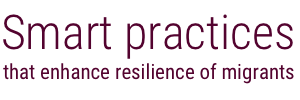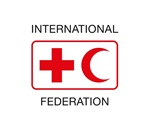A network of community interpreters provide neutral and independent support across different service areas for migrants.
A mobile phone application that provides newly arrived migrants relevant information on available services to help them settle in.
A centre that provides information relevant to the asylum process to anyone who may need it, including migrants, lawyers, judges and government officials. It provides accurate, unbiased and up-to-date research on countries of origin, and is key to improving the effectiveness of the process and the quality of asylum decisions.
A coalition of actors join forces to advocate together on an issue. The group operates on the assumption that campaigns that combine voices and send a common message to government are more likely to influence policy change.
Advocacy focusing on a specific issue for a sustained period, with a clear ask on actionable changes. The advocacy operates on the assumption that focus and a clear ask gain the attention of key policy makers more effectively.
Advocacy that uses systematic, timely and measured presentation of evidence, which is collected directly from Red Cross Red Crescent programmes. This type of evidence can create a credible and compelling body of evidence and insights for policy makers, and strengthen Red Cross Red Crescent humanitarian diplomacy efforts.
Solar technology installed in water wells to provide renewable power to boreholes. The solar energy reduces the costs of extracting water.
Teams of physicians who provide care over a longer period of time for a consistent group of migrants. The continuity of services enable physicians to build relationships with and knowledge of their patients and thus better serve their health care needs.
Small committees of migrants nominated to work with service providers in settlements on identifying and addressing needs and improving quality of services.
Migrant populations are provided microfinance products tailored to different types of financial needs.

